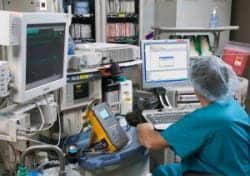Centinel Spine, a global medical device company addressing cervical and lumbar spinal disease through anterior surgical access, announced the first implantation of its prodisc C Vivo Cervical Total Disc Replacement (TDR) product in the Western U.S.
In July, the company received U.S. FDA approval for 1-level indications for prodisc C Vivo, prodisc C SK, and prodisc C Nova. Along with the currently available prodisc C implant, Centinel Spine provides a broad offering of cervical TDR solutions to address surgeon preference and individual patient anatomy.
Alexandre Rasouli, MD, of Rasouli Spine in Beverly Hills, California, performed the prodisc C Vivo procedure.
“The prodisc portfolio in general has a long history of clinical excellence, utilizing a proven mechanism of motion combined with established materials,” says Rasouli. “The prodisc C Vivo system was extremely easy to use and combines well-designed instruments along with a streamlined technique. This system will be a valuable treatment option for my patients, especially in the outpatient setting.”
The prodisc C Vivo system has been in clinical use internationally since 2009 and is currently one of the most frequently implanted TDR devices outside of the U.S. Similar to all prodisc products, the prodisc C Vivo device incorporates prodisc CORE technology, the basis behind the predictable clinical outcomes of the prodisc platform after 30 years and over 225,000 implantations worldwide.
“We are pleased that leading spine surgeons, like Dr. Rasouli, are choosing to treat patients with prodisc C Vivo,” says Centinel Spine CEO Steve Murray. “The anatomic endplate designs of the entire prodisc cervical portfolio provide options for surgeons to choose the best disc for each patient according to their anatomy. The prodisc C Vivo implant is the newest option in Centinel Spine’s continued commitment to improving spine care.”
Featured image: prodisc C Vivo. Photo: Centinel Spine




